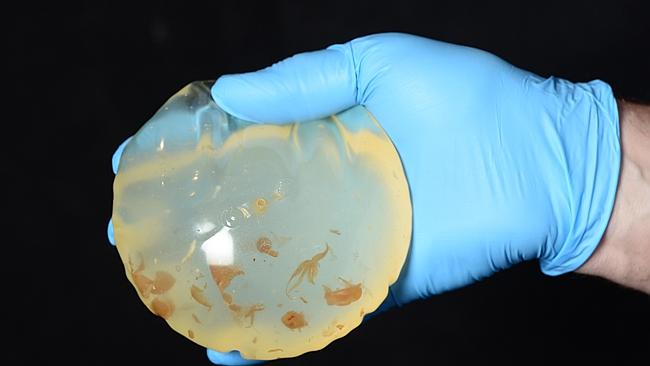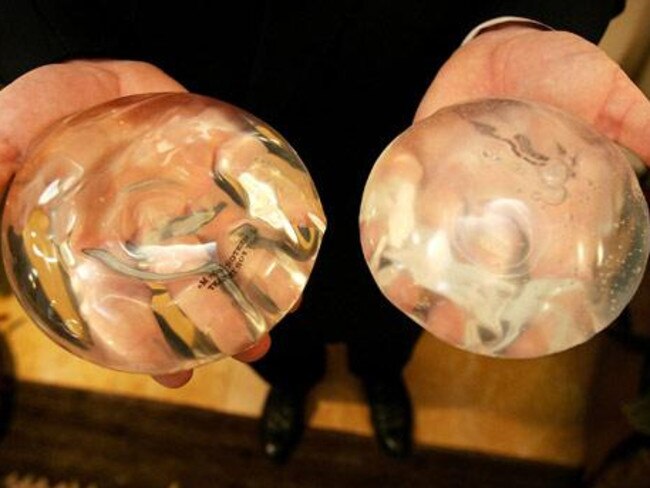Professor Anand Deva finds bacteria growing on most commonly used breast implants linked to cancer
BACTERIA growing on the most commonly used breast implants in Australia could lead to a rare form of cancer, new research shows.

THE most commonly used breast implants in Australia have been linked to a rare cancer.
As Australian surgeons race to offer cut price breast augmentation to compete with the Asian market, new concerns have emerged over the most common type of plastic surgery.
Macquarie University Professor Anand Deva has found chronic infection around textured breast implants can activate the immune system and lymphocytes.
The long term stimulation of these lymphocytes could help transform the cells into cancer cells, he says in an article to be published in the journal Plastic and Reconstructive Surgery.
Worldwide around 170 cases of a rare tumour anaplastic large cell lymphoma have been reported and Professor Deva says “all 170 cases have been associated with having implants as some sort of risk factor”.
DRAMATIC RISE: PIP breast implant ruptures
UPDATED PERSPECTIVE: PIP breast implants

He says in 90 per cent of cases the breast implants implicated were textured implants, the most commonly used type of implant in Australia.
BOOB JOBS: Mum so impressed with daughter’s implants had them too
BREAST IMPLANT: Woman used crowdsourcing website
The US Food and Drug Administration and the World Health Organisation have made the disease notifiable.
Professor Deva’s previous research has found bacteria that live in clumps attached to breast implants is a major cause of a painful hardening of the tissue around the implant, the most common cause for revision surgery.
He has developed a 14 point plan to help reduce the risk of infection in breast implantation surgery which he says might also help reduce the cancer risk.

To reduce infection surgeons must avoid the implant touching the patient’s skin, irrigate the pocket they insert the implant into with antiseptic and antibiotics, minimise the time between opening the implant package and inserting it and use intravenous antibiotics during surgery.
“I’d be saying to women considering breast implants to make sure the surgeon is aware of this research and the 14 point plan to reduce the contamination of implants,” he said.

The cancer link comes after thousands of Australian women were involved in the PIP breast implant scare.
The French made implants were filled with industrial not medical silicone.
The nation’s medicines watchdog the Therapeutic Goods Administration has tested the implants and found the unauthorised gels used do not contain chemicals that are toxic to living cells and do not affect the DNA of cells, and so there is no extra risk of cancer from these implants.



